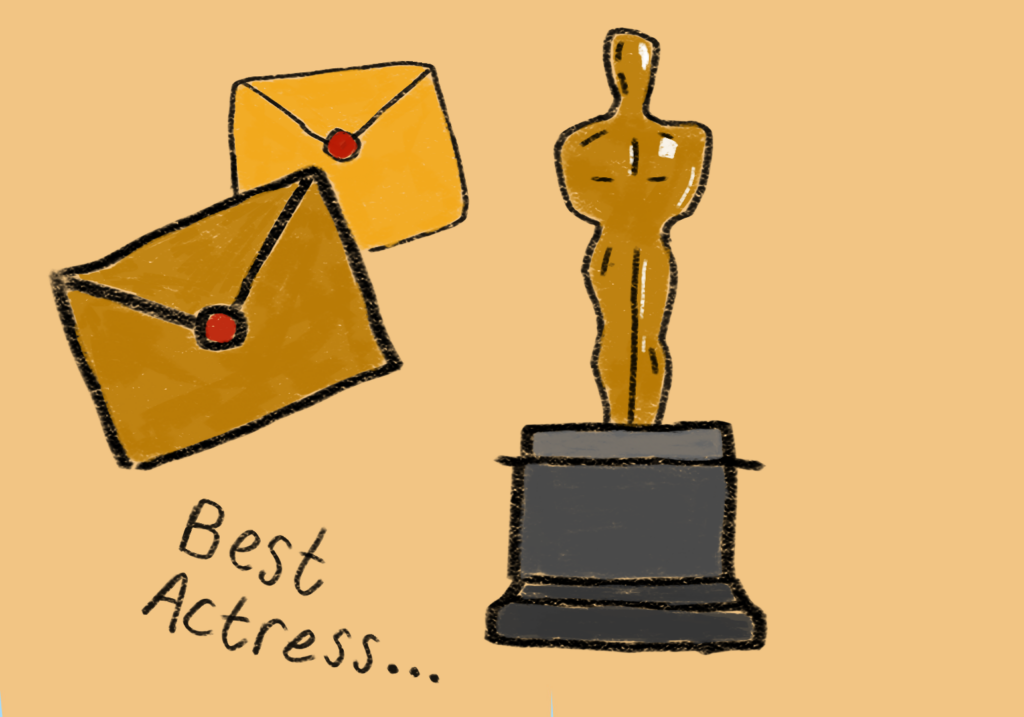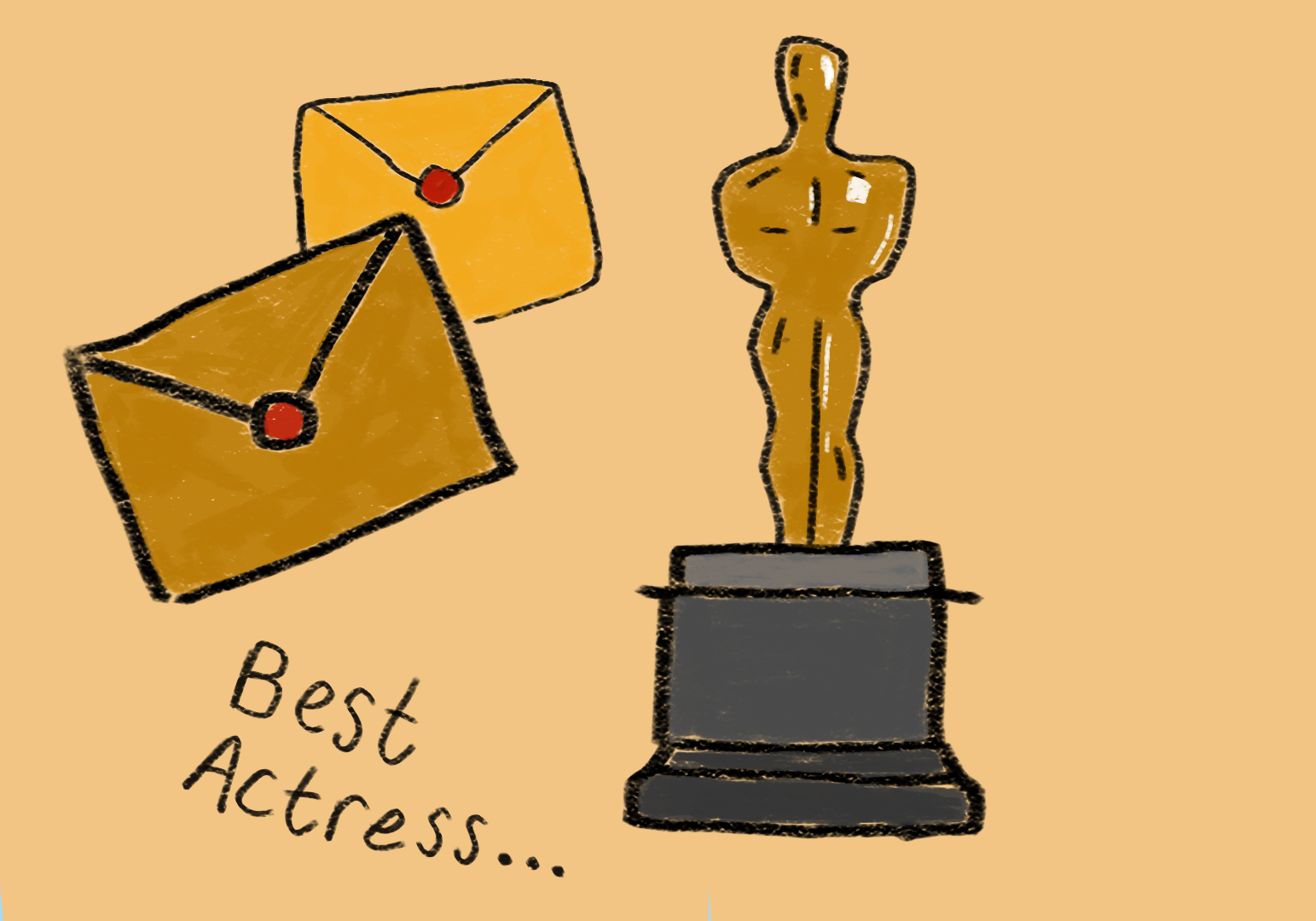With this year’s Oscars just three weeks away, I have read countless articles with predictions on who might take home these awards on the evening of March 12. However, this has also reminded me of the classic film criticism show “Siskel and Ebert” — mainly when they did a few hour-long specials, telling the public their opinions on who should win the Oscar of significant categories. So, instead of only talking about the possibly fortunate and unfortunate predictions of the ceremony, I decided to talk about my votes, if I had a ballot for the Academy Awards, in different categories.
Best Original Screenplay: “The Banshees of Inisherin” by Martin McDonagh
It makes sense to give the writing award to the film with some of the best banter and conversations on the island of Inisherin. Director and screenwriter Martin McDonagh is known for writing sharp dialogue that mixes comedy and tragedy, both for the stage and the screen. And “Banshees” contains a lot of this superb dialogue, filled with off-color humor and well-developed tension on an island stuck in limbo amid the Irish Civil War. This tension lies primarily in the platonic break-up between main characters Colm (Brendan Gleeson) and Pádraic (Colin Farrell) that incites the film’s central conflict. There’s stellar subtext between the two, who for the duration of the film try, and fail, to hide their hostile feelings toward one another.. Also, I’m not going to include my pick for Best Adapted Screenplay because I have only seen one film on the list (Yes, it was “Top Gun: Maverick”). But I will say that “The Whale” was truly snubbed of a nomination.
Best Supporting Actor: Brendan Gleeson, “The Banshees of Inisherin”
The internet is obsessed with Ke Huy Quan for his role as Waymond in “Everything, Everywhere, All at Once,” most likely due to his career resurgence after former popularity as a child star in “Indiana Jones and the Temple of Doom” and “The Goonies.” But, despite this social media frenzy, I enjoyed Brendan Gleeson more as the standoffish Colm in “The Banshees of Inisherin.” While Quan is mainly ogled over by the internet for his bigger, louder performance in such a bombastic story, I thought Gleeson added a nice subtlety to Colm, a man with a quiet routine who grapples with his inner demons. His line delivery allows him to be more elusive toward others, and is made more ambiguous with his subtle looks. The delivery and looks help Gleeson’s character, who does more self-destructive things like end his friendship with Pádraic (Farrell), or cut his fingers off, rather than confiding in others about his genuine emotions. A performance where an actor is trying to hold his feelings back is something I really enjoy in a film, and Brendan Gleeson demonstrates that restraint perfectly.
Best Supporting Actress: Kerry Condon, “The Banshees of Inisherin”
Kerry Condon stands out in “Banshees” as Siobhán, the assertive sister to Colin Farrell’s Pádraic. At first, she holds her own, willing to confront anyone who gives her a hard time on the island. However, when she tells someone off, you can sense some vulnerability hidden within her confidence. As the film progresses, it becomes clear that she has deeply held insecurities which she masks with assertiveness.. However, there are some great scenes where she reveals her more sensitive side, which makes you empathize more. Condon perfects the duality between assertion and sensibility in the film, which makes for a memorable performance.
Best Director: Todd Field, “Tár”
Even as a Spielberg fanboy who thought “The Fabelmans” was A-Tier in his filmography, I realized how much I loved the decisions Todd Field made in “Tár.” Weaving together Monika Willi’s editing and Florian Hoffmeister’s cinematography (both of whom are nominated in these categories and I’m rooting for to win), Field created an ambiguously unsettling tone to Lydia Tár’s world and many secrets. Field’s variations of timing in his shots have the same fantastic effect as shots in films by directors like Stanley Kubrick, for example, “2001: A Space Odyssey.” The mise-en-scene also works well with the technical aspects, as the frigid world of classical music is similar to the depiction of isolation in director Fritz Lang’s “M.” Although Spielberg is also able to give an excellent warm tone to his semi-autobiography, I now also can see Todd Field as a great candidate for best director of 2022.
Best Actress: Cate Blanchett, “Tár”
Although this choice may sound like a cliché this year, the internet is right about Cate Blanchett being the definitive female performance of the year. Like Daniel Day-Lewis’ Oscar-winning performance in “There Will Be Blood,” Blanchett plays a stellar opportunist who uses success and charisma to hide their sociopathic tendencies. But instead of the rough oil industry, Blanchett hides her corruption in a pretentious classical music community, using an upper-class accent that hides her New Jersey suburbia roots. Blanchett is also notable for using her face when looking at other characters to show what she is willing to do with her power without garnering too much suspicion from others. But eventually, the secrets of Lydia Tár become more public, and give out to explosive acting in the last act of the film as her true self is exposed. The slow burn of this complex character makes Cate Blanchett most likely to receive her third Oscar win and second Best Actress Award.
Best Actor: Brendan Fraser, “The Whale”
Once again, like with Blanchett, I have to go with the popular opinion when I say that Brendan Fraser is the definitive male performance of the year. When playing the obese English professor Charlie, Fraser makes you see the character instead of seeing him play a character, like a particular performance this year (cough… cough… Austin Butler). Brendan Fraser’s excellent line deliveries could be partially attributed to his weight gain, which makes him sound more tired and slow.. His melancholy tone also evokes empathy, while showing him as someone who brings a burden onto everyone in his life and makes him a complex character in this compelling story. That dichotomy between Charlie being both a victim of his morbid obesity, as well as bringing it upon himself, is illustrated well by Fraser’s significant comeback role.
Best Picture: “The Banshees of Inisherin”
This year feels like a close race for the biggest prize in the Academy, showing how great 2022 was for film. But for me, , “The Banshees of Inisherin” deserves best picture. When I watched the trailer many months ago, I didn’t really know what to expect from a plot as simple as an abrupt platonic break-up between Colin Farrell and Brendan Gleeson. But when seeing it, I enjoyed the other characters that surround the story and are affected by the duo’s conflict. I was able to empathize with many of the characters and felt different leaving the theater due to the film’s theme of loneliness, the trauma people sustain from it, and the way people grieve about it. In addition, I also enjoyed the darkly comedic scenes that make the movie not an entirely tragic story that can make people feel bad. And although I won’t mind if “The Fabelmans” or “Tár” receives the big prize, I would vote for “Banshees” as the best film of the year and one of the best of the decade.
Biggest Snub: Best Cinematography, “The Banshees of Inisherin” and “Decision To Leave”
I hate the existence of “Elvis,” which I’ll talk more about later. There were films in 2022 with much better cinematography, two of which were “Banshees” by Ben Davis and “Decision to Leave” by Kim Ji-Yong. You can’t entirely blame the cinematographer of “Elvis” Mandy Walker for not being able to make the synthetic set and abhorrent CGI look good, as that’s more the fault of director Baz Luhrmann. However, Davis and Ji-Yong were able to give such beautiful and eye-catching aesthetics to their images. With “Banshees,” Davis has many moments in the film where he gets very artsy with his shots. Whether it’s shots of landscapes, animals, or religious figures across Inisherin, his shots give the island such a freakish tone. As for “Decision To Leave,” this was one of the best-shot films of the year. What Ji-Yong and director Park Chan-Wook do with the camera is exceptionally stunning, with some of the sharpest yet exaggerated camera angles and zooms seen in modern films. These unusual camera techniques help show the impaired mental landscape of this Hitchcockian story and were an obvious contender because of it. However, the images designed for each film make me disappointed in people seeing “Elvis” as something that is better than what Ben Davis and Kim Ji-Yong did for each of their works.
Worst Nomination: Best Film Editing, “Elvis”
I’ve made it clear how much I did not enjoy “Elvis,” let alone Baz Luhrmann, in the slightest. And although best cinematography was a mistake, editing seems like a much bigger mistake. Luhrmann’s infamously annoying directorial hyperactivity leads to Matt Villa’s and Jonathan Redmond’s editing choices feeling poorly engineered. In addition, the post production that is usually part of a Luhrmann movie — which is what makes them such a horrible experience to get through — is made worse by the awful pacing and makes the two-and-a-half-hour film feel like five hours. It’s even more disappointing that this is in the same category as the more subtle choices in “Banshees,” the tense sequences of “Tár”, and the action-packed moments of “Top Gun: Maverick” that make each of these films more memorable.
Those are my choices. So let’s see what happens on the evening of March 12.


